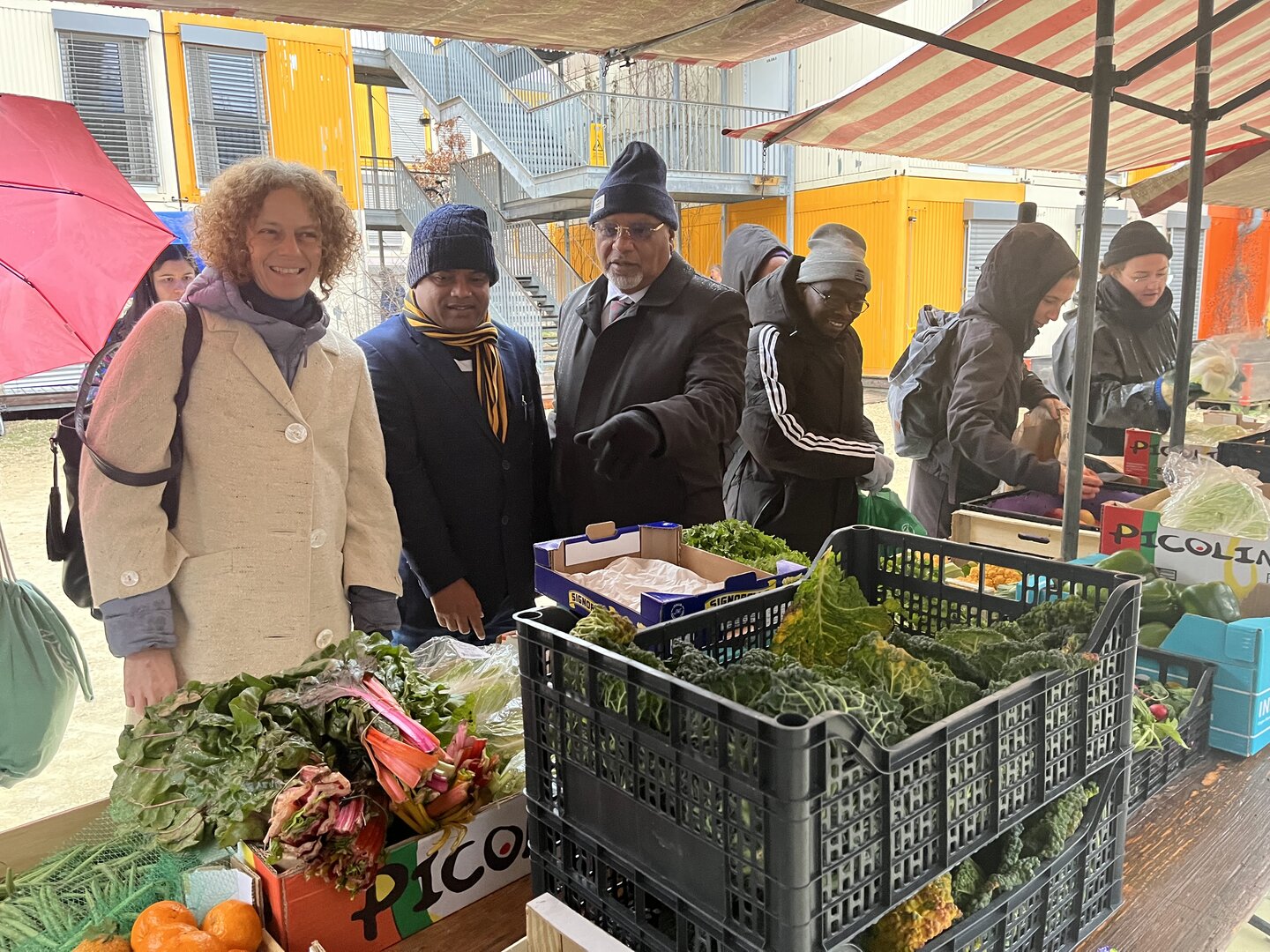More and more people in Bangladesh are moving to cities. This increases the challenges of providing adequate shelter, drinking water and food for all. Helvetas is working with the city of Cox's Bazar to improve access to safe and nutritious food for the most vulnerable families, with technical support from the city of Zurich.
-
Project NameIC4N - Inclusive Cities for Nutrition
-
Project Phase2022 to 2025
-
FundingCity of Zurich, Donations from Foundations and private donors
-
Thematic focusUrban Engagement
Food & Nutrition
In about 10 years, two-thirds of Bangladesh's population will be living in cities. More and more people from the surrounding villages are moving to medium-sized urban centers – including Cox's Bazar – in search of better opportunities. Providing adequate housing, water, healthcare and schools for a rapidly growing population is poses major challenges.
Many families live in informal settlements in areas that are exposed to flash floods and landslides. They have little access to clean water and adequate toilets. They often have to adjust to precarious jobs and an insecure income, which puts them at great risk of poverty and malnutrition. When money is tight, families are forced to cut back on portions, reduce the number of meals and forgo the most nutritious foods.
In addition, nearly one million Rohingya who have fled violence in neighboring Myanmar are now living in the world's largest refugee camp on the outskirts of Cox's Bazar. Feeding these people is putting additional pressure on food supplies and contributing to the worsening price spikes associated with the international crisis.
Trained mothers lead others
The IC4N project is working with the city of Cox's Bazar in 12 vulnerable neighborhoods to raise awareness of the nutritional value of food and good practices in storage, preparation and cooking. Under the guidance of "lead mothers" trained by the project, women meet to learn how to cook their vegetables or wean their babies properly. Families are encouraged to grow their own organic vegetables, even where space is limited. Helvetas provides seeds, organic fertilizer and pest traps, and is supported by experts from the community. These local service providers are trained by the project to advise participants on agricultural techniques. In addition, Helvetas involves local market vendors to improve the quality and hygiene standards of fruit, vegetables and other foods through proper transportation, preservation and handling of goods.
Ensuring that everyone has enough nutritious food requires collaboration by many different actors, including local authorities, who can play a crucial role in supporting and harmonizing these efforts. Helvetas is working with the municipality of Cox's Bazar to promote a better understanding of the local food system and identify ways to improve its functioning.
Nasrin Akter, Nexus Programme Manager and Standing Project Manager for IC4N project
Working with Zurich and Mbeya in Tanzania
To achieve this goal, we also promote cooperation between the cities of Zurich and Cox's Bazar. This city-to-city cooperation promotes political dialog, the exchange of knowledge and collaboration on specific projects. Thanks to a monitoring system, the individual aspects of a food system such as production, transportation, storage, preparation and more are to be permanently safeguarded. At a political level, the city cooperation receives support from the cities’ mayors.
In addition to Cox's Bazar, the IC4N initiative is also being implemented in Mbeya, Tanzania, and facilitates a South-South learning process. Best practices from both cities will be shared and both projects will therefore also contribute to global joint learning on urban food systems.









